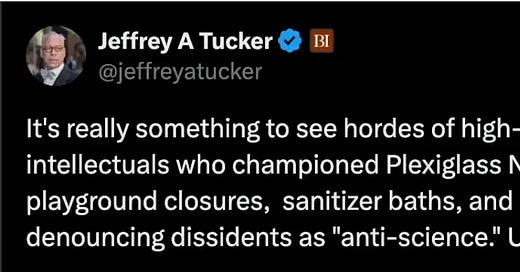Link: Manufacturing Dissent
Summary by ChatGPT 4.0
Josh Stylman’s Manufacturing Dissent critiques the media’s coordinated attacks on Robert F. Kennedy, Jr.’s nomination as HHS Secretary, arguing that mainstream institutions engage in narrative control rather than substantive debate. The article highlights how media outlets like The New York Times and MSNBC dismiss Kennedy as a “conspiracy theorist” without engaging with his actual policy positions, particularly on vaccines, public health, and corporate influence.
Stylman outlines how institutional credibility is collapsing due to the media’s refusal to engage with dissenting voices. He argues that Kennedy’s broad appeal—particularly his concerns about regulatory failures, food safety, and vaccine safety—crosses political lines, making him a threat to entrenched interests. Instead of addressing these issues, the media uses fear-based messaging and ad hominem attacks.
The article critiques the broader phenomenon of "manufactured consent," where media and political institutions coordinate messaging to discredit opposing views rather than fostering open discourse. Stylman emphasizes that the media’s failure to engage with Kennedy’s concerns—such as safety testing for pharmaceutical products—deepens public distrust. He draws parallels to Orwellian propaganda, warning that the media’s dismissive tactics fuel skepticism and reinforce Kennedy’s growing support.
Ultimately, Stylman calls for independent scrutiny of Kennedy’s policies rather than reliance on media characterizations, urging people to listen to his speeches, read his work directly, and critically examine the evidence behind his claims. He concludes that institutional gatekeepers are losing control, and their aggressive attempts to discredit Kennedy reveal how much they stand to lose.



